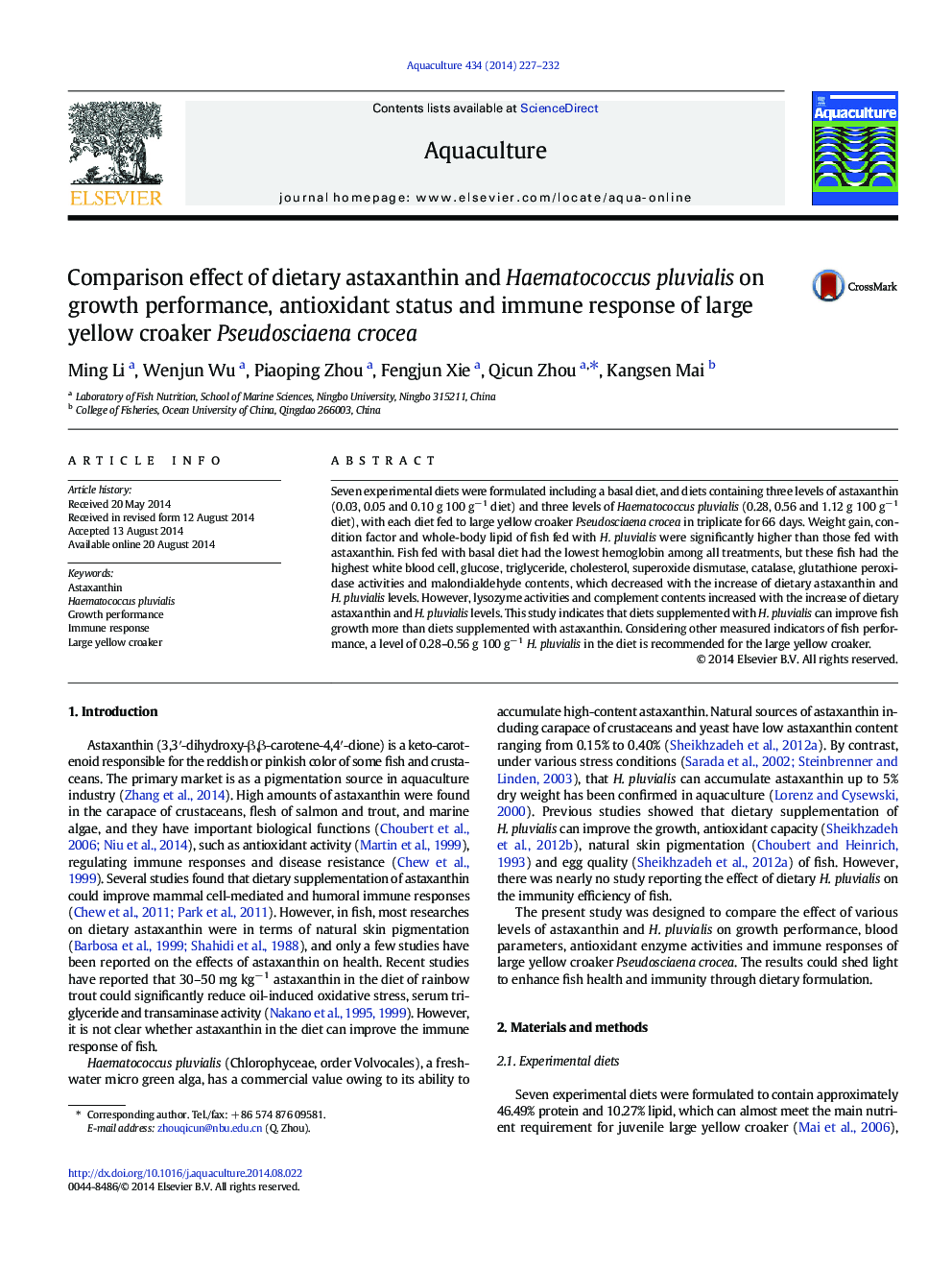| Article ID | Journal | Published Year | Pages | File Type |
|---|---|---|---|---|
| 2421691 | Aquaculture | 2014 | 6 Pages |
•Dietary astaxanthin and H. pluvialis improves fish weight gain.•Growth of fish fed H. pluvialis was higher than that fed astaxanthin.•Astaxanthin and H. pluvialis in diet improve the immune response of fish.
Seven experimental diets were formulated including a basal diet, and diets containing three levels of astaxanthin (0.03, 0.05 and 0.10 g 100 g− 1 diet) and three levels of Haematococcus pluvialis (0.28, 0.56 and 1.12 g 100 g− 1 diet), with each diet fed to large yellow croaker Pseudosciaena crocea in triplicate for 66 days. Weight gain, condition factor and whole-body lipid of fish fed with H. pluvialis were significantly higher than those fed with astaxanthin. Fish fed with basal diet had the lowest hemoglobin among all treatments, but these fish had the highest white blood cell, glucose, triglyceride, cholesterol, superoxide dismutase, catalase, glutathione peroxidase activities and malondialdehyde contents, which decreased with the increase of dietary astaxanthin and H. pluvialis levels. However, lysozyme activities and complement contents increased with the increase of dietary astaxanthin and H. pluvialis levels. This study indicates that diets supplemented with H. pluvialis can improve fish growth more than diets supplemented with astaxanthin. Considering other measured indicators of fish performance, a level of 0.28–0.56 g 100 g− 1H. pluvialis in the diet is recommended for the large yellow croaker.
